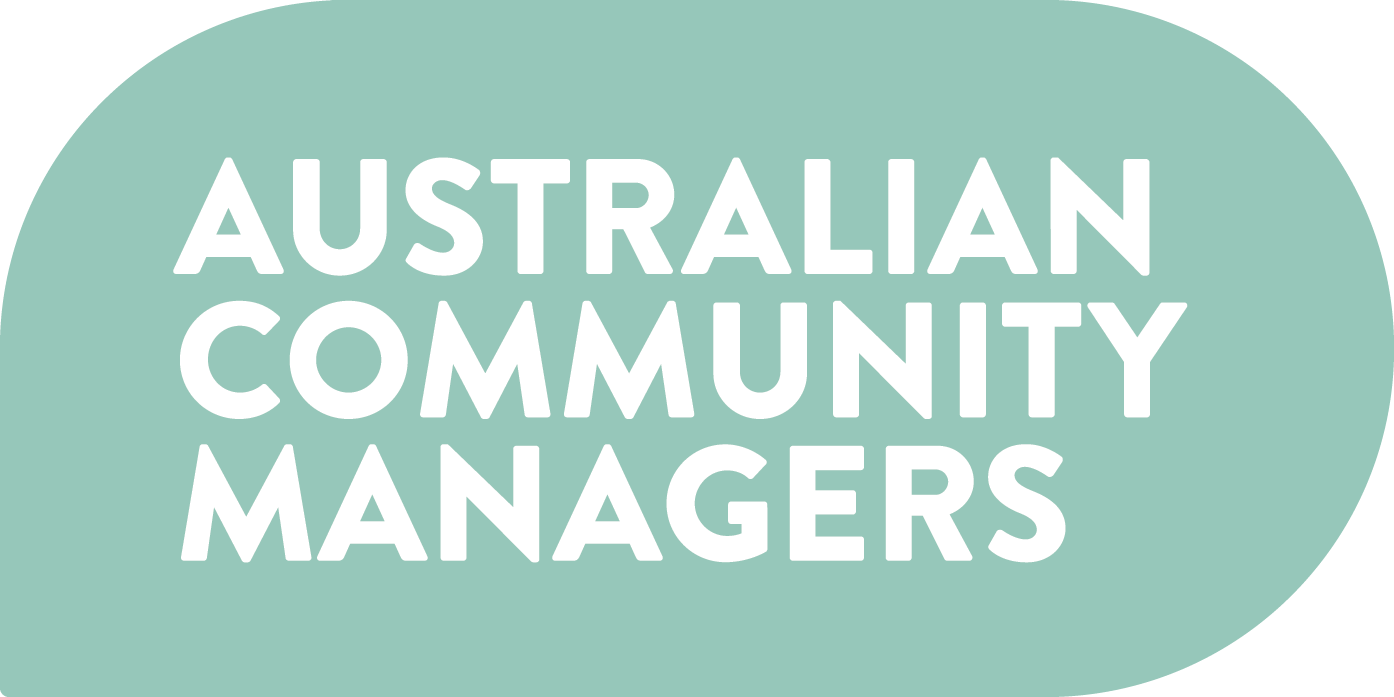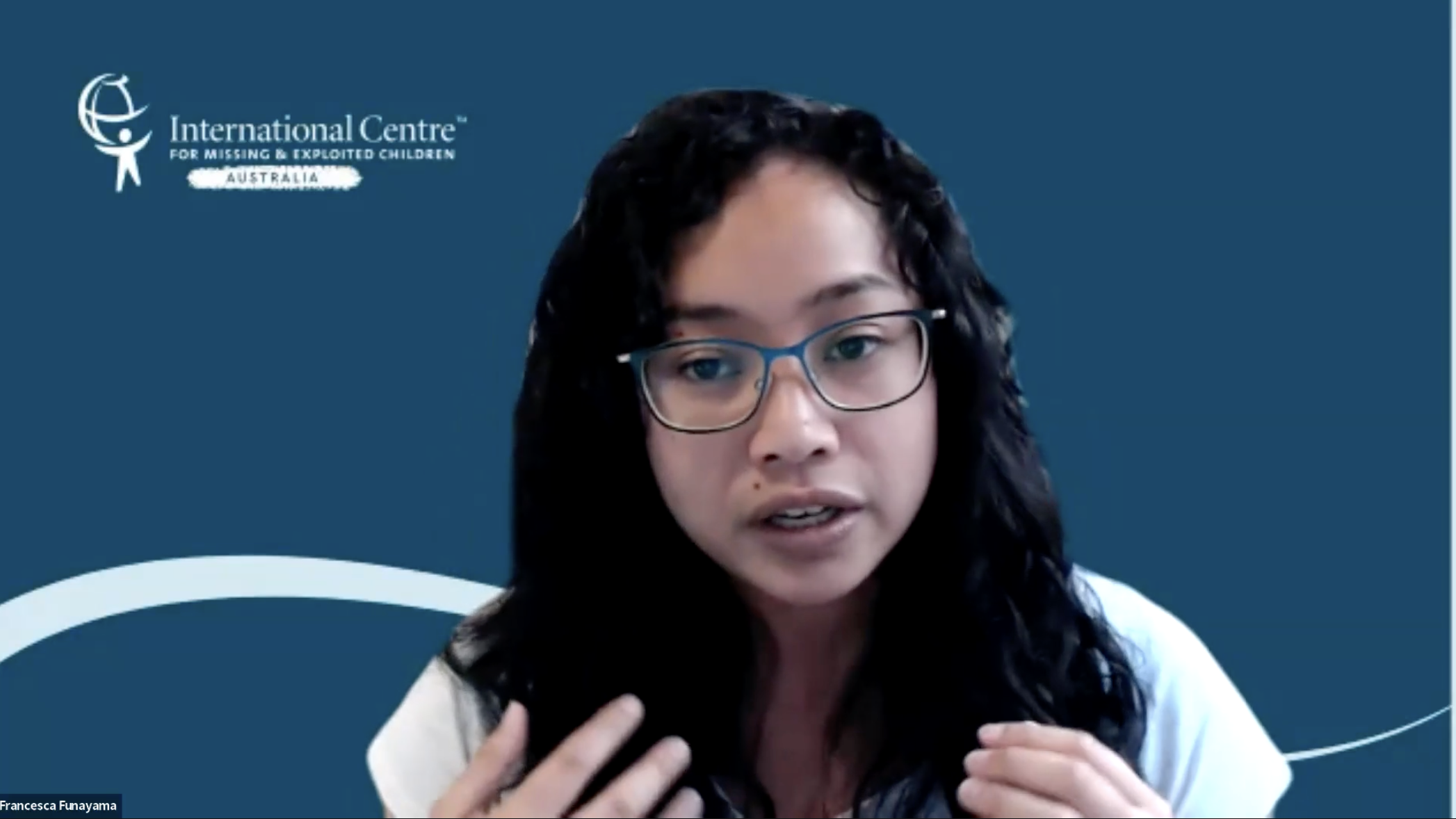Child safety awareness for moderators
Francesca Funayama manages ICMEC’s Member Portal, a private community for stakeholders within the child sexual exploitation response ecosystem.
Content warning: This post discusses child sexual exploitation.
As digital first responders, moderators can benefit from raising their awareness of the online sexual exploitation of children (OSEC) .
Francesca Funayama, community manager at the International Centre for Missing and Exploited Children (ICMEC) Australia shared her insights into integrating child safety and moderation at the inaugural All Things in Moderation conference.
About child sexual exploitation (CSE):
What does CSE look like in online spaces?
In online communities, child sexual exploitation takes many forms. It may look like child sexual abuse material being shared, adults having inappropriate conversations about a child, or an adult sending inappropriate imagery to a child.
Correct terminology: do’s and don’ts
Conversations about CSE in the media or in certain legal jurisdictions often use terms that aren't trauma informed. It's important to use the right terms to avoid stigmatizing or sensationalising CSE.
Do use:
Child sexual exploitation (CSE)
Child sexual abuse material (CSAM)
Victim-survivor
Perpetrator or offender
Don't use:
Child pornography
Victim
Pedophile
Trauma-informed awareness tips for moderators
Recognise that trauma is a possibility. You never know if people around you- whether that’s community members, peers or colleagues- have been impacted by trauma.
Create safe spaces and conversations. Trust, dignity, choice and empowerment for survivors should be a priority in your community. Avoid knee jerk reactions and listen to survivors first: there might be something you can help them action, but they might just want you to listen.
Minimise re-traumatising people. The way you navigate these difficult conversations can have a real impact on survivors, so it’s important to be conscious of how you react to disclosures. Remember that people cope with trauma in many ways and may not respond or act like you might expect. If you encounter challenging trauma-related behaviours from a community member, try to focus on their story, not what they’re doing.
How to integrate CSE into risk management and governance
Trauma-informed awareness is only the first step in accounting for child safety. Here are some starting points for how to integrate this awareness into policy and procedures:
-
Child or victim-centric policies
Incorporate National Principles for Child Safety
Incorporate Safety by Design
-
Escalation procedures should back up policy and governance by:
Account for CSE as a possibility
Practice trauma-informed care- this should be a note in your escalation procedure
Direct people to the right resources
A risk management process that incorporates awareness of CSE might look like responding to a disclosure from a child with trauma informed awareness, then governance policies and escalation procedures kicking in.
Francesca discusses the difficulty of staying on top of child safety with ever-changing tools and technologies.
Where to find resources on CSE
Australian Government Esafety Reporting Tool: Government tool for reporting CSAM and other illegal content.
Blue Knot Foundation: Complex trauma advocacy and support for professionals.
Australian Centre to Counter Child Exploitation AFP-led organisation sharing resources and reporting tools.
Bravehearts: Not for profit sharing statistics, support and resources about online child sexual exploitation.
Stop it Now! Australia: Prevention program for adults concerned about their own or someone else’s thoughts towards children, with anonymous spaces to report concerns.
National Office for Child Safety Resources on the National Strategy to Respond to Child Sexual Abuse.
Office of the Children's Guardian: Child Safe standards for organisations.
If this post has raised issues for you, the following resources are available to help:
Blue Knot Foundation Helpline: 1300 657 380
1800RESPECT
Lifeline 13 11 14
All Things in Moderation ran online 11-12 May 2023 and featured over 25 expert contributors from around the world and across practitioner, academic and policy disciplines.



